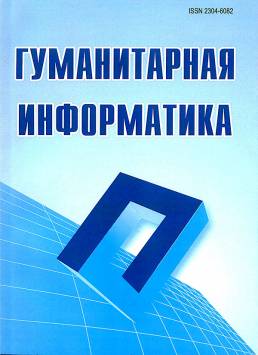Information and Paradoxes
In this article the research in philosophy of information to use the concept of the information in discussion of the problem of semantic paradoxes is considered. In particular, there is discussed the Liar Paradox from a logical point of view. In the 20 century, when the problem of overcoming of the set-theoretical and semantic paradoxes in philosophy of mathematics and logic was addressed, two well-known concepts criticizing the idea of self-reference were developed, as it was declared to be the basis of paradoxes. Those were the theory of types of Russell (1908) and the semantic theory of Tarski (1935). Moreover, Russell clearly stated that his theory of types, by establishing of a ban on production of self-referential statements, would resolve the difficulties not only in the area of philosophy of mathematics related to emergence of set-theoretic paradoxes, but also would be able to be a logical and epistemological justification for skepticism, because the classical argument accusing the skeptical stance of inconsistency is also based on the idea of self-reference (Whitehead and Russell, 1910). Tarski did not set such the epistemological goals for his semantic conception, but it also can serve as an appropriate logical defense for the perspective of skepticism. The classical argument against skepticism comes down to the fact that the thesis of a radical skeptic, “All statements are relative”, is self-contradictory. This thesis also constitutes a statement and therefore its production as an epistemologically trustworthy one refutes its own content, according to which construction of epistemologically trustworthy statements is impossible. From the point of view of distinguishing between a language and a meta-language, as it is done by Tarski in his semantic conception, it is not the position of skepticism, which states that the truth of any kind of judgments is relativized according to subjective/ inter-subjective factors of knowledge (cultural, linguistic, psychological, biological), is wrong, but philosophers who consider skepticism as a contradictory position are wrong. It is possible to regard the statement “All statements are relative” as self-contradictory only on the basis of incorrect mixing of different language levels. In fact, this very statement refers not to the language, which in this case appears as an object about which something is said, but to the meta-language, and, therefore, there is no contradiction in the statement of the skeptic. His saying “All statements are relative” may be absolute and it does not lead us to a certain collapse of thought, if only we do not forget to distinguish between the levels of the language each time. The theory of types can also be used to defend skepticism. One can say that the wording of logical difficulties of these skeptical views is based on a mixture of different types of statements. The saying “All statements are relative” falls into a higher logical type of statements than the type of those statements that it refers to. An appearance of contradiction arises because of unjustified mixing of these types. These problems in context of the concept of information are discussed in the article. Key words: information, sense, truth, logic, semantics, paradox.
Keywords
paradox, logic, semantics, information, sense, truth, парадокс, семантика, логика, истина, смысл, информацияAuthors
| Name | Organization | |
| Ladov V.A. | National Research Tomsk State University |
References

Information and Paradoxes | Humanitarian Informatics. 2015. № 9.